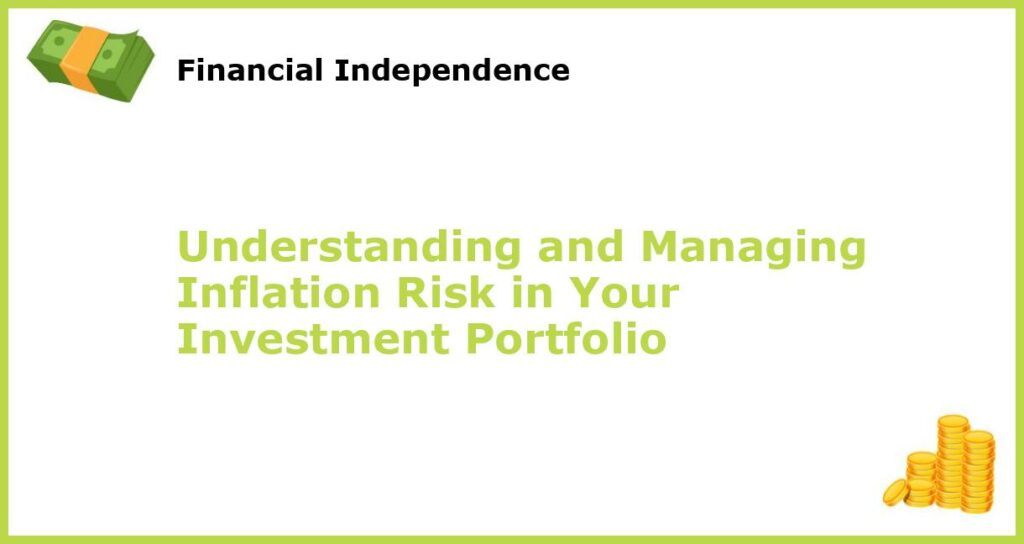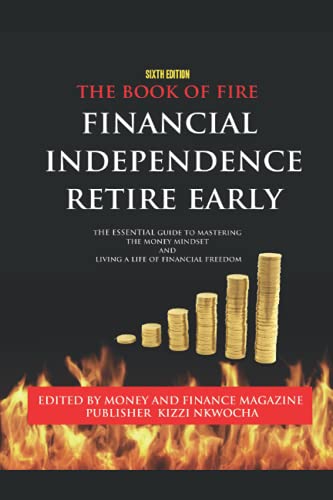Investing your money always carries risks, some of which you can anticipate and mitigate to protect your investment. One of the most significant factors that can impact your investments is inflation risk. Simply put, inflation risk happens when the rate of inflation escalates more quickly than the rate of return on your invested capital. In this article, we will discuss ways you can understand and manage inflation risk in your investment portfolio.
What is Inflation Risk?

Inflation risk is one of the biggest threats to your investment portfolio. When the rate of inflation surges, your investment returns may not keep pace with the increased cost of goods and services. This erosion of your purchasing power can diminish the value of your long-term investments over time.
To put it into perspective, let’s assume that you invested $10,000 ten years ago in a bond with a 5% fixed interest rate. Today that bond will have a value of a little over $16,000. However, if inflation erodes 2% of the bond’s value each year during the ten-year period, the bond would be worth $8,166. When inflation exceeds the rate of return on your investments, your investment value will decrease.
Why is Inflation Risk Important?

It is critical to understand inflation risk because it can significantly impact your purchasing power in the long-term. Investing is a long-term effort, and understanding the impact inflation risk has on your investments can help you make informed decisions that protect you from financial loss. When you invest in stocks, bonds or any other asset, you are putting a portion of your hard-earned money at risk. Inflation risk can put your investments at risk, so you need to be aware of its impact on your investments.
How Can You Manage Inflation Risk?

You may manage inflation risk by investing in assets that perform well during inflationary periods. History shows that equities or stocks, real estate, commodities, and certain natural resources can be critical hedges against inflation. These investments have a track record of keeping pace with inflation and may still provide positive returns that exceed the rate of inflation.
Impact of Inflation on Fixed-Income Investments

Fixed-income investments, such as bonds, can be particularly sensitive to inflation risk. This is because their returns are predetermined or fixed, which means that if inflation rises, the real rate of return on that investment may reduce over time. Higher inflation rates can cause people to sell off their fixed-income investments to invest in assets that can outperform inflation rates.
Understanding the Relationship Between Interest Rates and Inflation

The relationship between interest rates and inflation is a complex one. Simply put, central banks may increase interest rates to keep a tab on inflation rates. This interest rates hike can have a negative impact on investments considered interest rate-sensitive. Consequently, investors need to pay attention to economic trends and think about the potential impact of those trends on their investments.
How Can You Hedge Against Inflation?
One way to hedge against inflation is to consider inflation-protected securities like Treasury Inflation-Protected Securities (TIPS). These investments are designed to keep pace with inflation, which helps protect your buying power. TIPS come in various types including TIPS mutual funds, TIPS exchange-traded funds, and TIPS individual securities. You could consult a financial advisor to figure out which TIPS suit your goals and investors with different risk tolerances.
Understanding the Impact of Inflation on Currency
You must also understand how inflation affects currency values. When inflation is high, the value of currency tends to fall as investors begin to explore other stable currencies, creating a volatile market. Currency fluctuations can cause investments to appreciate or depreciate in value, exposing them to significant inflation risk.
Consider Diversifying Your Investments
One way to mitigate inflation risk is to diversify your investments over asset classes and regions. With this strategy, you can hedge against the risk of any single investment being impacted by inflation. Diversification means buying different investments, including crucial assets like stocks, mutual funds and real estate based on the asset allocation strategy that matches your investment goals and readiness to take on inherent risks.
Working with a Financial Advisor
The services of a professional financial advisor can help you manage inflation risk in several ways. For example, they can help you appreciate the impact of inflation on your investments based on past performance data and develop a plan for hedging against that risk. They can also help review and diversify your investment portfolio based on current economic trends.
The Bottom Line
Inflation risk is an essential consideration with any investment strategy because of the dire consequences of being caught off guard. Mitigating inflation risk can impact an investor in different ways by preserving their long-term purchasing power or providing a chance to create returns that surpass inflation. You can minimize inflation risk by investing in quality hedge investments, diversifying your portfolio, understand the impact of inflation on different investments, and consulting with financial advisors regularly.







